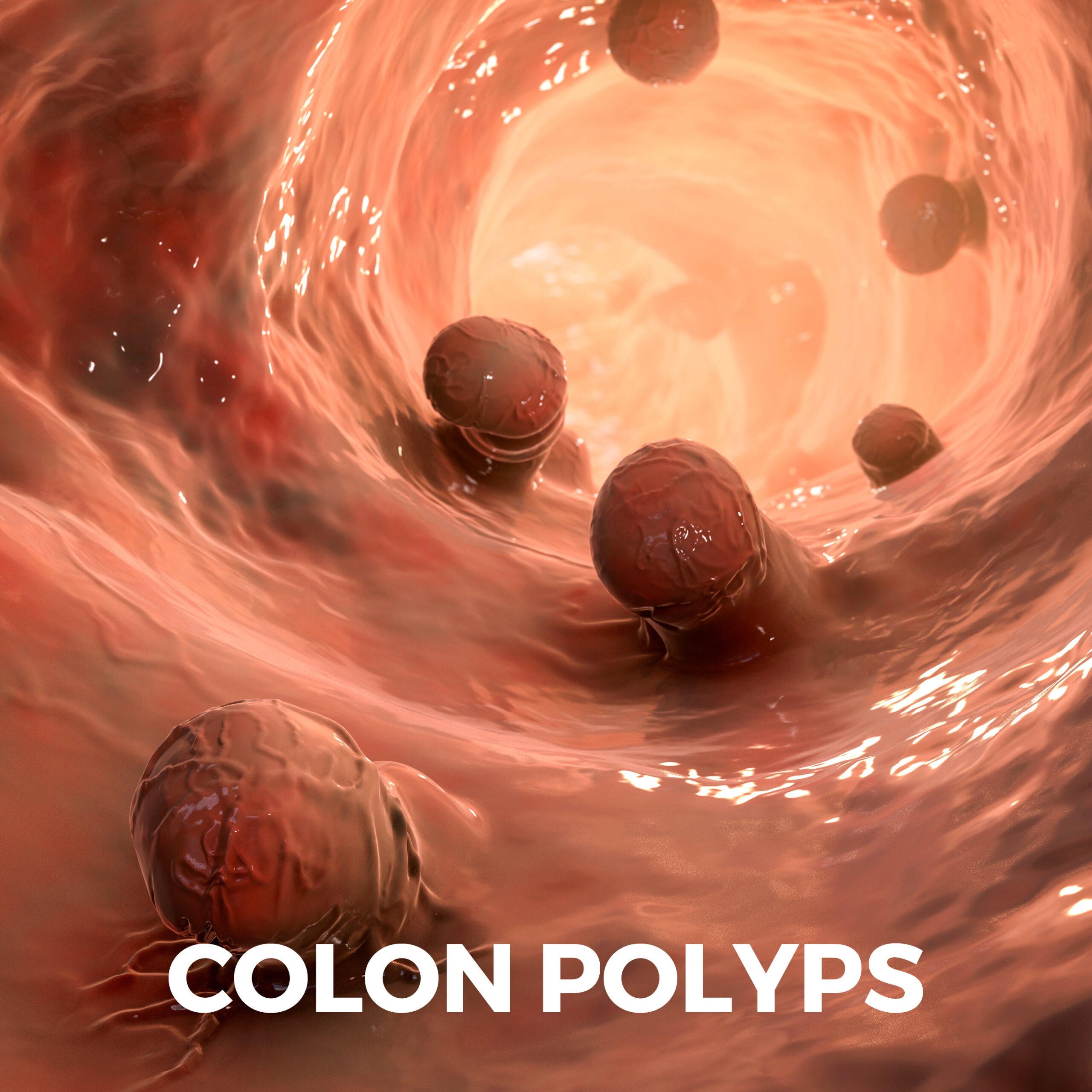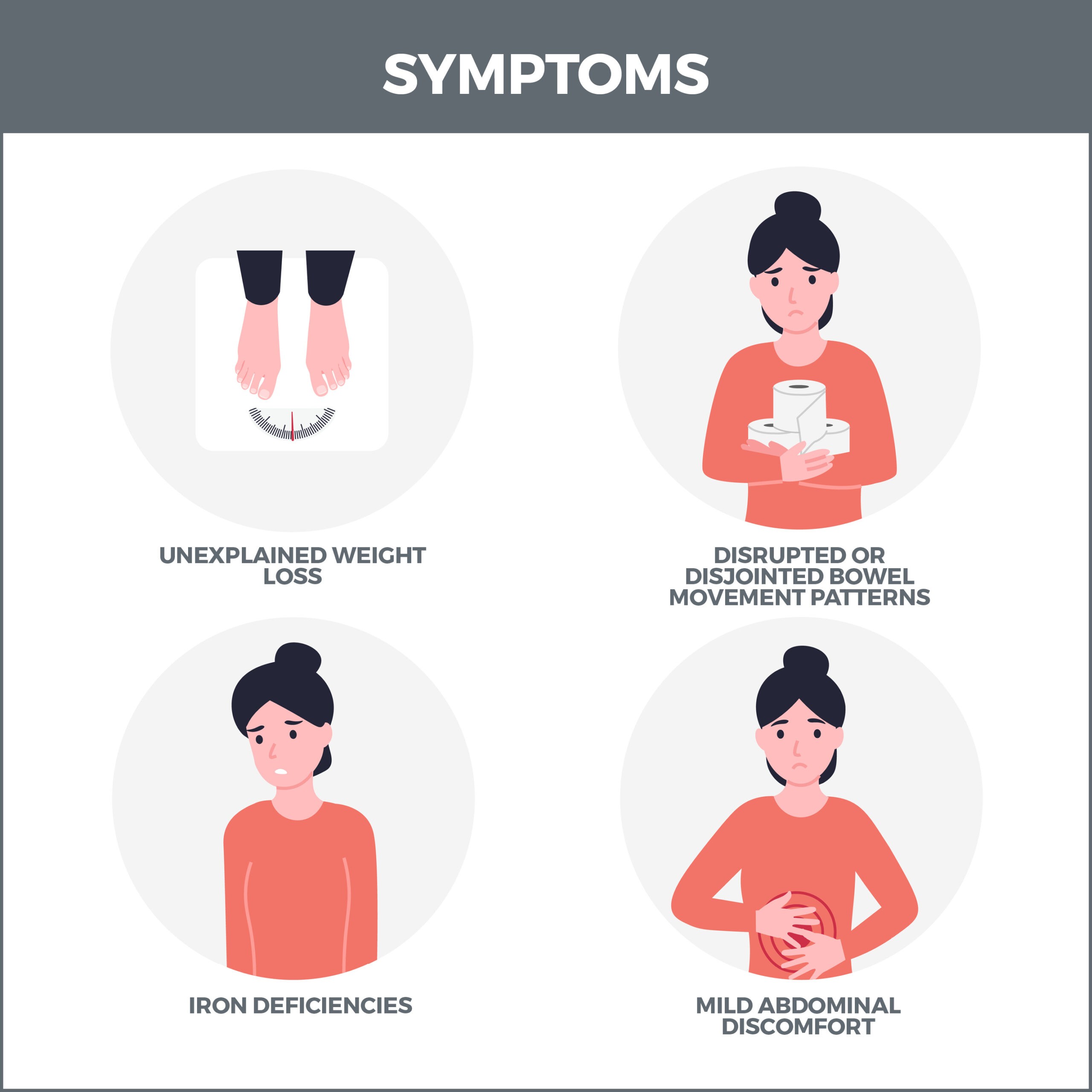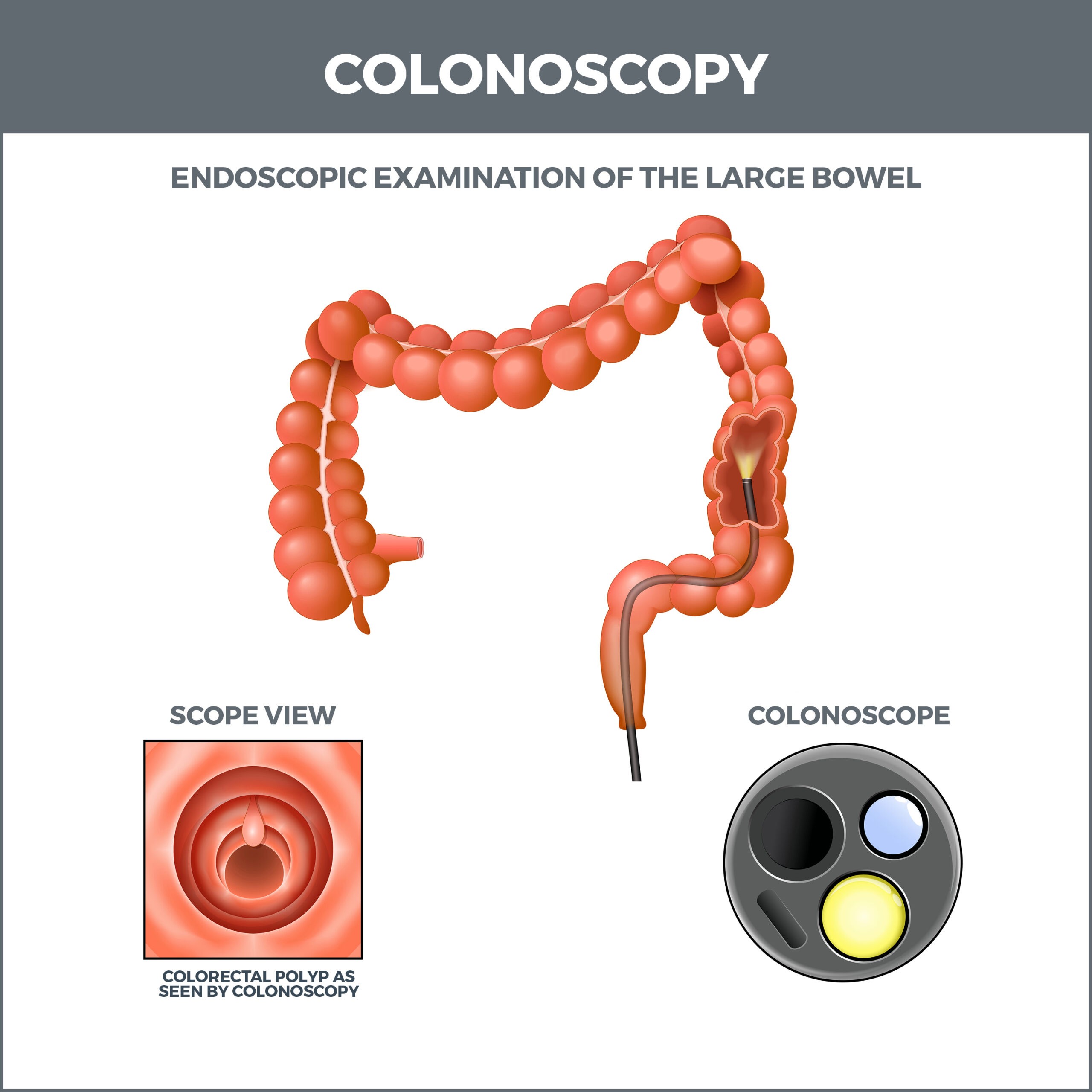
Colon Polyps
Looking out for your colon health means looking out for colon polyps.
The colon, also known as the large intestine, is a critical component of your gastrointestinal system. This large organ creates, stores, and helps get rid of a waste product known as fecal matter – food and systemic byproducts your body no longer requires.
Many ailments can impact the colon’s function and structure. One critical problem is the development of colon polyps.
Overview
Colon polyps are tiny growths on the large intestine’s lining. They come in several different shapes and sizes.
The raised type, medically called a sessile, has the appearance of a bump-like structure. Another category is called pedunculated, meaning colon polyps sprout stalks like vegetables such as broccoli or cauliflower.
In some instances, only one or a handful may develop. In other cases, the growths can accumulate and appear widespread throughout the colon.
Causes
Researchers attribute the emergence of colon polyps to abnormal cell growth. Often, this phenomenon is precipitated by some type of genetic mutation.
Risk Factors
Several risk factors increase your chances of being afflicted with this issue, including:
- Engaging In Harmful Vices – Your risk of developing colon polyps significantly increases if you smoke cigarettes or drink alcohol excessively. Several studies have shown that those who consume more than three alcoholic drinks daily have a significantly increased risk. The probability is even greater for those who drink and smoke.
- Obesity – Your risk rises substantially if you are obese. Excessive body fat tends to disrupt colon function.
- Family History – Your risk is significantly higher if a close family member had colon polyps or colon cancer.
- Ethnicity – Studies have shown that African Americans are more likely to have polyps and colon cancer.
- Underlying Illness – Certain underlying ailments might elevate your risk of colon polyps. This is especially true if you had or are being treated for inflammatory bowel disorders like Crohn’s disease and ulcerative colitis.
- Age – If you are over 50, your risk of colon polyps increases.
- Genetic Disorders – Genetic diseases might play a role in the emergence of colon polyps. While rare, these conditions also elevate your chances of contracting colon cancer. Specific examples include:
-
- Gardner’s syndrome.
- MUTYH-associated polyposis.
- Peutz-Jeghers syndrome.
- Lynch syndrome.
- Serrated polyposis syndrome.
- Familial adenomatous polyposis.

Symptoms
In their early stages of development and sometimes well after, colon polyps produce few, if any, symptoms.
When physical symptoms are present, you might encounter:
- Unexplained weight loss.
- Iron deficiencies.
- Disrupted or disjointed bowel movement patterns.
- Mild abdominal discomfort.

You may also witness blood in your stools. If you have any of these symptoms, immediately schedule a visit to your gastroenterologist because they could indicate colon cancer, inflammatory bowel disease, or other potentially serious concerns.
Complications
Colon polyps are further divided into two categories: hyperplastic and adenoma. Hyperplastic polyps are typically harmless and rarely lead to possible complications.
The adenoma variety carries the potential to develop into cancer. Doctors are most concerned with larger adenomas, which most typically form into malignant growths.
Diagnosis
If you have symptoms of colon polyps or a family history of polyps or cancer, your doctor will likely order stool tests. Your stool samples are gathered and taken to a laboratory for further investigation. Occasionally, the presence of blood or genetic alterations can suggest the emergence of polyps or cancer.
Your doctor might order internal imaging scans designed to capture pictures of your colon. These photos help them more easily identify abnormalities like polyps. Specific tests include computerized tomography, magnetic resonance imaging, colonoscopy, and sigmoidoscopy.
Potential Treatment Options
Treatment will depend on several factors, such as your age, family history of colon or other digestive system cancers, and your general health, in addition to the size and type of the polyp.
If small hyperplastic formations are found, your doctor might opt to wait and, if they continue to grow larger, remove them later. Often moderate to large hyperplastic polyps are extracted.
If adenomas are detected, the recommended treatment method is surgery. Only 5% of these masses eventually become malignant. They usually take anywhere from 7 to 10 years to become cancerous. If you have any risk factors, the problem could progress at a far quicker rate.
Follow-Up
Once polyps are removed, you are urged to schedule follow-up visits with your doctor. Your doctor may have you undergo a colonoscopy. Sometimes, more polyps are found during the examinations.

If testing identifies only a few small polyps, you will be classified as low risk for cancer development and not need to undergo an additional colonoscopy for at least five years. If internal imaging reveals a bigger or larger collection of polyps, your doctor will recommend that you undergo further testing within three years.
Should no polyps or abnormalities be seen during the follow-up colonoscopy, you can typically wait at least ten years before needing additional evaluation.
Prevention
Prevention is not always possible. You might reduce your chances by:
- Consuming a diet containing foods with high fiber such as produce, beans, whole grain products, and peas.
- Maintaining a healthy weight.
- Limiting your intake of overly processed foods, red meat, and all edibles with excessive fat concentrations.
- Obtaining enough exercise.
- Augmenting your diet with cancer-fighting nutrient supplements like Vitamin D and calcium.
Above all, you should get regular checkups. This is particularly important if a close relative had polyps or cancer.
Contact Us
If you have a family history of colon polyps or cancer or believe you might have the condition, please reach out to us. The team of professionals at GastroMD looks forward to working with you. We are one of the leading gastroenterology practices in the Tampa Bay area. We perform many diagnostic procedures using state-of-the-art equipment in a friendly, comfortable, and inviting atmosphere where patient care is always a top priority!



